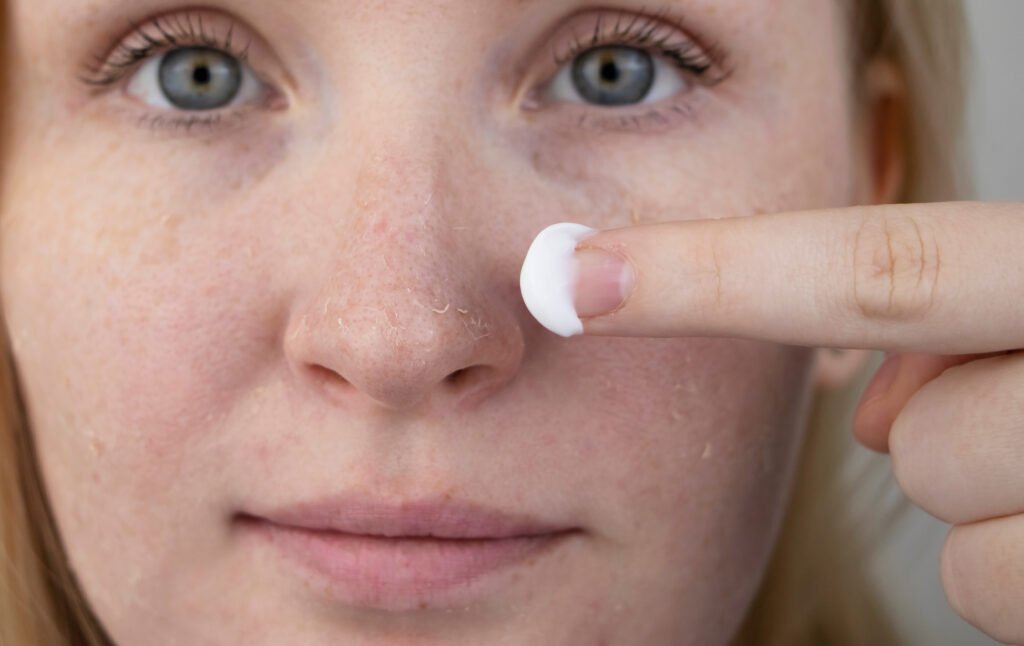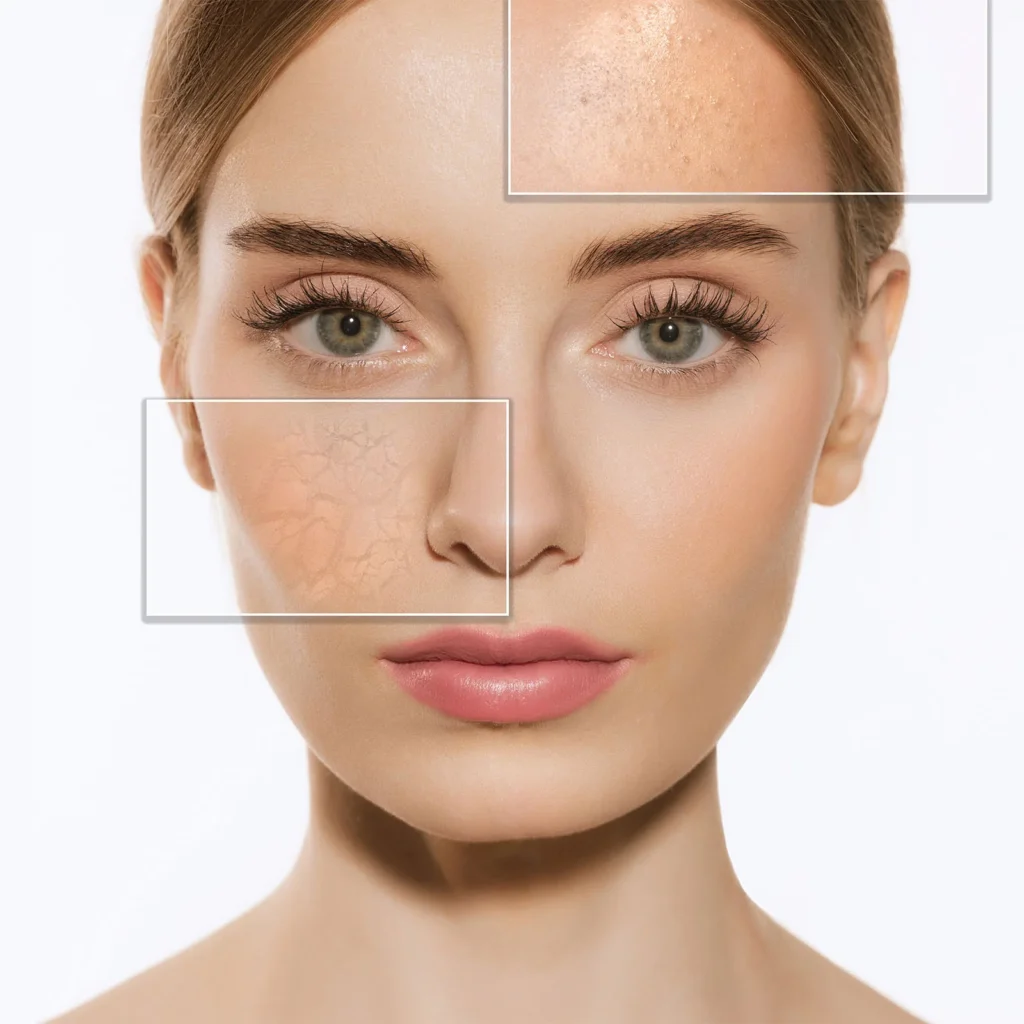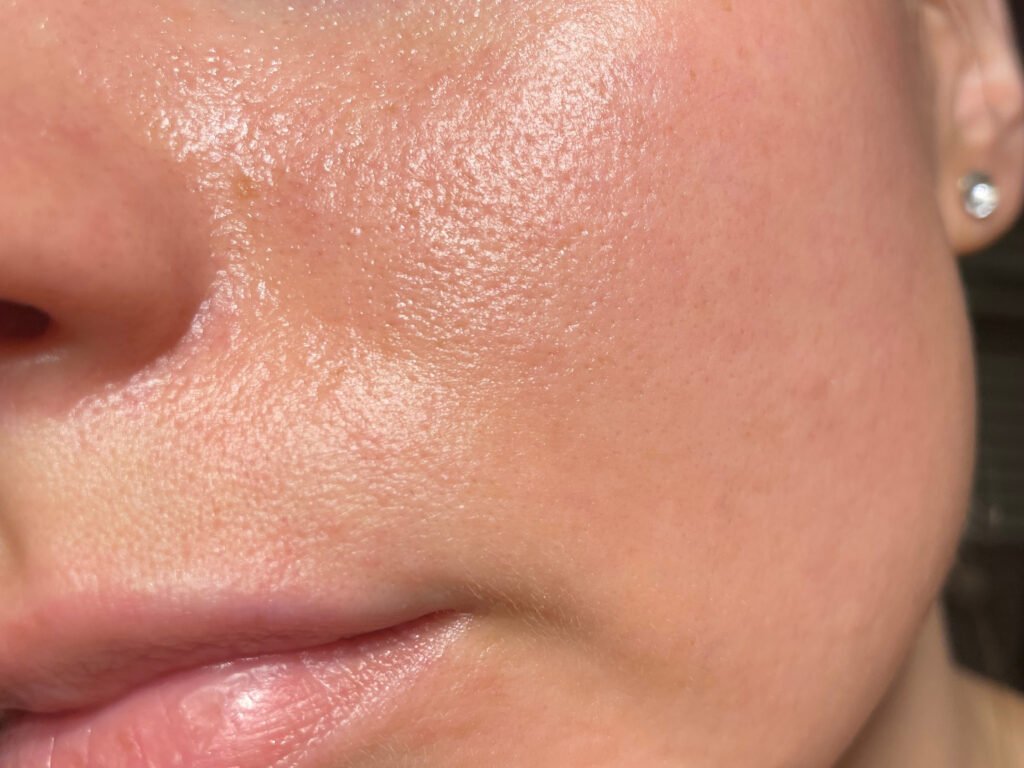No two skins are the same — and your skincare routine shouldn’t be either.
Understanding your skin type plays a key role in crafting an effective routine.
With the right knowledge, you can avoid unnecessary breakouts, irritation, or chronic dryness.
Dermatologists generally classify skin into four major types: dry, oily, combination, and sensitive.
Each category requires specific strategies for care.
1. Dry Skin (Xerosis)

Dry skin lacks both moisture and essential lipids.
As a result, it often feels tight, appears flaky, and looks dull.
A weakened barrier increases its vulnerability to external irritants and premature aging.
Key needs: hydration, barrier repair, and soothing ingredients.
🧴 Routine Highlights:
- Cleanser: Opt for cream or oil-based cleansers that don’t contain sulfates.
- Toner: Choose alcohol-free toners with hydrating ingredients like rose water or hyaluronic acid.
- Moisturizer: Moisturize with rich occlusives like ceramides, squalane, or shea butter.
- Extras: Incorporate weekly nourishing masks and avoid cleansing with hot water.
📖 Harvard Health notes: “Low humidity and harsh cleansers accelerate dryness and damage the skin barrier.”
🔗 The Ultimate Skin Care Routine for Dry Skin
🔗 8 Home Remedies for Dry Skin
2. Oily Skin

Excessive sebum production gives oily skin its shine and makes it prone to clogged pores.
Breakouts are common, especially when the skin is stripped by alcohol-based products.
Ironically, harsh cleansing can trigger even more oil production.
Key needs: balanced oil control, non-comedogenic ingredients, and gentle pH-friendly products.
🧴 Routine Highlights:
- Cleanser: A gel or foam cleanser containing salicylic acid or tea tree oil works well.
- Toner: Choose a mild exfoliating toner with ingredients like BHA or witch hazel.
- Moisturizer: Look for lightweight, oil-free formulas that include niacinamide or aloe vera.
- Extras: Apply clay masks 1–2 times a week and use blotting sheets as needed.
📖 The Journal of Clinical and Aesthetic Dermatology highlights niacinamide as effective for reducing oiliness and inflammation.
🔗 Dermatologist-recommended skin care routines and tips for different skin types
3. Combination Skin

Combination skin includes oily areas, typically the T-zone, along with drier patches on the cheeks.
Because of this dual nature, a single approach won’t work for the entire face. Tailored care by zone is necessary.
Key needs: zone-specific care, adequate hydration without heavy occlusion.
🧴 Routine Highlights:
- Cleanser: Use a gentle foaming cleanser, ideally sulfate-free.
- Toner: Balance your skin with toners that include panthenol or green tea extract.
- Moisturizer: Apply gel-based products on oily zones and cream-based ones on dry areas.
- Extras: Consider multi-masking — using different types of masks on different areas.
📖 The American Academy of Dermatology suggests treating the skin “by zones rather than as a whole.”
🔗 The Ultimate Skin Care Routine for Combination Skin
🔗 Dermatologist-recommended skin care routines and tips for different skin types
4. Sensitive Skin

Skin that reacts easily to fragrances, alcohol, and active ingredients like acids or retinoids falls into this category.
It often presents with redness, stinging, or a burning sensation — sometimes even bumps.
Key needs: barrier protection, anti-inflammatory support, and ultra-gentle formulations.
🧴 Routine Highlights:
- Cleanser: Stick with fragrance-free, creamy cleansers designed for sensitivity.
- Toner: If needed, choose calming toners with ingredients like chamomile or centella asiatica.
- Moisturizer: Look for barrier-repairing formulas with ceramides and soothing ingredients like allantoin.
- Extras: Always patch test new products and avoid essential oils or known irritants.
📖 Cleveland Clinic warns: “Harsh products can trigger flare-ups and long-term skin sensitivity.”
🔗 Sensitive skin: Home remedies and prevention
🔗 Choosing best moisturizers for sensitive skin: What to know
🔗 Dermatologist-recommended skin care routines and tips for different skin types
To summarize the contents
Knowing your skin type is the cornerstone of building a healthy skincare routine.
Rather than chasing beauty trends, focus on what your skin is truly asking for.
Skincare isn’t one-size-fits-all — it’s a personal journey that evolves with you.
“Listen to your skin — it speaks in dryness, oiliness, and irritation.”




Pingback: Cleansing Mistakes to Avoid - GlowTrek
Pingback: Benefits and Necessity of Toner for Healthy Skin - GlowTrek
Pingback: Moisturizer Guide - GlowTrek
Pingback: How to Use Sunscreen Properly and Avoid Damage - GlowTrek
Pingback: Why a Calorie Deficit Is the Foundation of All Weight Loss - GlowTrek